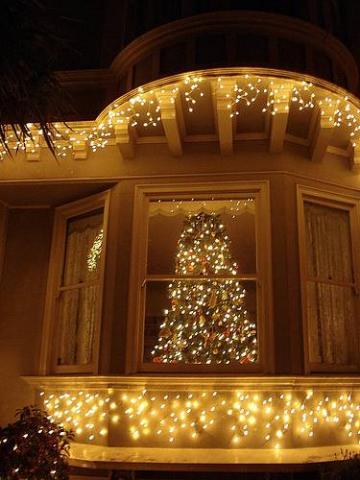Home for Christmas

Dermot Bolger travels from Cork to Thailand and back to 'the city of eternal education' in his Christmas viewing
I recall a time in the 1970s and 1980s when Irish people could only ever contextualise the success of any Irish person by referring to them as "Ireland's answer" to some English singer or comedian. With those days behind us, it is nice to turn the tables and introduce the Edwardian showground filmmakers, Mitchell and Kenyon as England's answer to Father Browne. In the same way as the vast treasure trove of photographic negatives belonging to that Jesuit priest lay undisturbed and forgotten for decades, over 900 reels of film belonging to Mitchell and Kenyon lay in a warehouse in Blackpool for almost 90 years until their recent discovery.
Written and narrated by Pat Butler and directed by Anne Roper, Sweet Cork of Thee – Edwardian Cork on Camera (Christmas Day, 8.10pm, RTÉ 2) was the latest television programme to trawl through this rich legacy of film images. This follows on the success of the recent BBC 2 series devoted to their footage. What makes the footage fascinating is the totally arbitrary manner in which it was shot purely for profit. For years Mitchell and Kenyon turned up in cities and towns and started running their cameras with the sole intention of capturing as many passing faces as possible in the expectation that those same faces would turn up at their show tent that evening and pay in for the magical chance to glimpse their faces on screen.
They had no artistic agenda beyond profit. If their films of the streets of Cork between 1901 and 1903 betray in their backdrop a city fiercely loyal to the crown, with Union Jacks hanging above shops and casually trailing from pleasure craft on the river, such an insight into the hidden past of the "rebel county" was incidental to their purpose. They turned up for major public event like the Great Cork Exhibition, but were equally happy to film workers pouring of a Cork factory. To a large extent in Cork they captured a smug provincial British city, glowing in the self-satisfaction of its own perceived gentility. They rarely filmed the festering poverty of back lanes where residents would have little money for showground tents.
It wasn't strictly true to say that all these images were being seen for the film time, as some of the most powerful footage was recently used in Conal Creedon's Hidden History: The Burning of Cork on RTÉ just a few weeks ago. But whereas Creedon's film charted Cork's rapid journey from a loyal provincial city to a politically charged one, Sweet Cork of Thee was really just a homage to, and a meditation on, those long dead faces with impression contributions from the poet Theo Dorgan and others.
It made for intelligent Christmas night viewing as did Sweet Liberties, (RTÉ1, Christmas night, 7.40pm) a nostalgic look at life in the Dublin liberties directed by Ted Dolan back in 1975. It was shown, one suspects, in part as a tribute to the late, great folk singer Frank Harte who features strongly in it. It was a nice raid from the archives.
The face of Christmas changed for people in many countries following the tsunami last St Stephen's Day and RTÉ marked its first anniversary with two programmes. Firstly it showed Bill Malone's very personal documentary, Return to Tsunami (St Stephen's Day, RTÉ 1, 8.30pm) in which he returned to Thailand where a year ago he witnessed the disaster at first hand. This was followed by Frontier Films' Tsunami – One Year On (RTÉ 1, Tuesday, 6.30pm), the Edel O'Brien produced and directed examination of relief efforts by Irish agencies like Concern to rebuild amid the devastation. As ever, John O'Shea of GOAL was excellent in being the teller of uncomfortable truths about dealing with corrupt regimes. But the main focus was on looking at Irish people like Annie Walsh who came as a tourist, survived the disaster and stayed on to try and help people, and Anne O'Mahoney of Concern whose decisions on the front line included how best to spent the €20,000 raised by her family and friends in Cork.
However the television highlights of the week were the appearance on The Late Late Show (Friday, 9.30pm) of the newly retired Trinity professor and very unretired poet Brendan Kennelly, who talked at length about the sheer length of a day without the strictures and routines of a job to fill it and his attempts to establish a new rhythm within his life in the Dublin that he called "a city of eternal education". And also the exhausted Gaeltacht women in Bean an Tí (TG4, Thursday, 9.30pm) who finally saw off the vast hordes of Irish students who had been summer lodgers in their houses, closed the front door and sank into the nearest chair like war veterans glad it was all over for another year.
